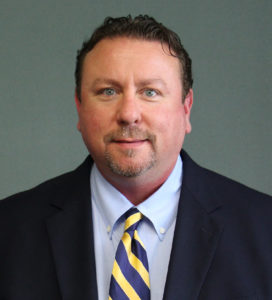Last month, we had the privilege to hear from Dr. Ben Wilson the Clinical Manager of Addiction Services at Aspire Indiana Health as a part of Hope Academy’s speaker series. His presentation focused on ways in which we can help end the stigma associated with mental health and substance use disorder. By definition, stigmas are terms used to describe a range of negative attitudes, beliefs and behaviors and are often socially discrediting.

Mental health conditions, including substance use disorder, are considered stigmatized conditions which means people who have these conditions are perceived as at fault for acquiring the condition. Many people mistakenly believe that mental health conditions are within a person’s control and they are wholly responsible for their condition.
Stigmas most commonly result from a lack of knowledge, misinformation, social norms, the media and rumors or gossip to name a few. There are many negative impacts that affect those who are stigmatized. They often face rejection, discrimination and bullying. Many don’t seek treatment out of fear of being judged, and if they do, they are more likely to drop out because of how they are treated by health care providers. This is obviously a negative cycle which leads to worsening conditions.
You might be wondering what your role in this is and how you can help! An easy place to start is by changing the language you use. Words such as “addict” and “drug abuser” can evoke negative thoughts and perpetuate stigmas. This language implies that the person is the problem.
When describing someone who struggles with substance abuse, it is best to say “person with substance use disorder.” This suggests that a person has a problem that can both be addressed and treated. Using this person-first language can help reduce stigmas rather than placing blame on the person with the condition.
When you hear stigmatizing words being used, such as schizo, psycho, druggie, etc., you can feel empowered to ask meaningful questions, suggest the use of person-first language, and engage in conversations about how to reduce stigmas pertaining to mental health conditions. At Hope Academy, we are passionate about supporting our students and helping them feel empowered to treat their substance use disorder. We work hard to ensure they never feel rejected or discriminated against, therefore, we are committed to using and promoting person-first language.
Watch Dr. Ben Wilson’s recorded presentation and check out the other fall 2021 speakers here. In September, we had the pleasure of hearing Janice Gabe discuss the challenges of addressing youth marijuana use. In October, Dr. Angela Tomlin presented Untangling Toxic Relationships and Trauma Experiences. We are fortunate to work with experts in our community, and in turn, are continually improving our treatment methods.
